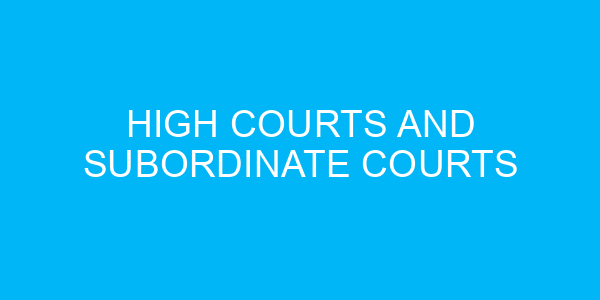86. Which one of the following statements is true about the hierarchy of Subordinate Courts?
a) District Courts have appellate jurisdiction over High Courts
b) High Courts have appellate jurisdiction over District Courts
c) Subordinate Courts have appellate jurisdiction over High Courts
d) High Courts have original jurisdiction over Subordinate Courts
87. The decisions of a District Court on questions of law are binding on:
a) Lower courts within the district
b) Lower courts in other districts
c) Subordinate courts within the state
d) All courts within the country
88. Which one of the following statements is true about the powers of a District Court?
a) It can issue writs to enforce fundamental rights
b) It can review the decisions of higher courts
c) It can strike down laws inconsistent with the Constitution
d) It exercises judicial powers within its prescribed jurisdiction
89. The Chief Judicial Magistrate in a district is responsible for:
a) Supervising the lower courts in the district
b) Conducting trials in criminal cases
c) Administering the district judiciary
d) Appointing judges to the District Court
90. Which legislation provides for the establishment of Lok Adalats?
a) Indian Penal Code
b) Code of Civil Procedure
c) Legal Services Authorities Act
d) Constitution of India



